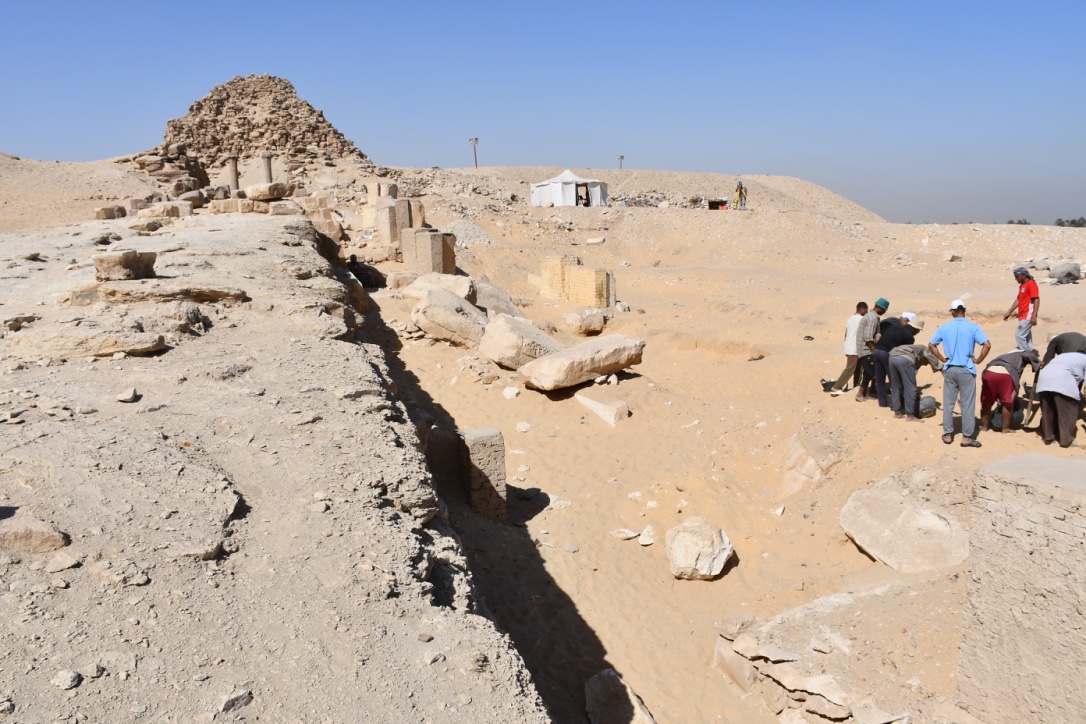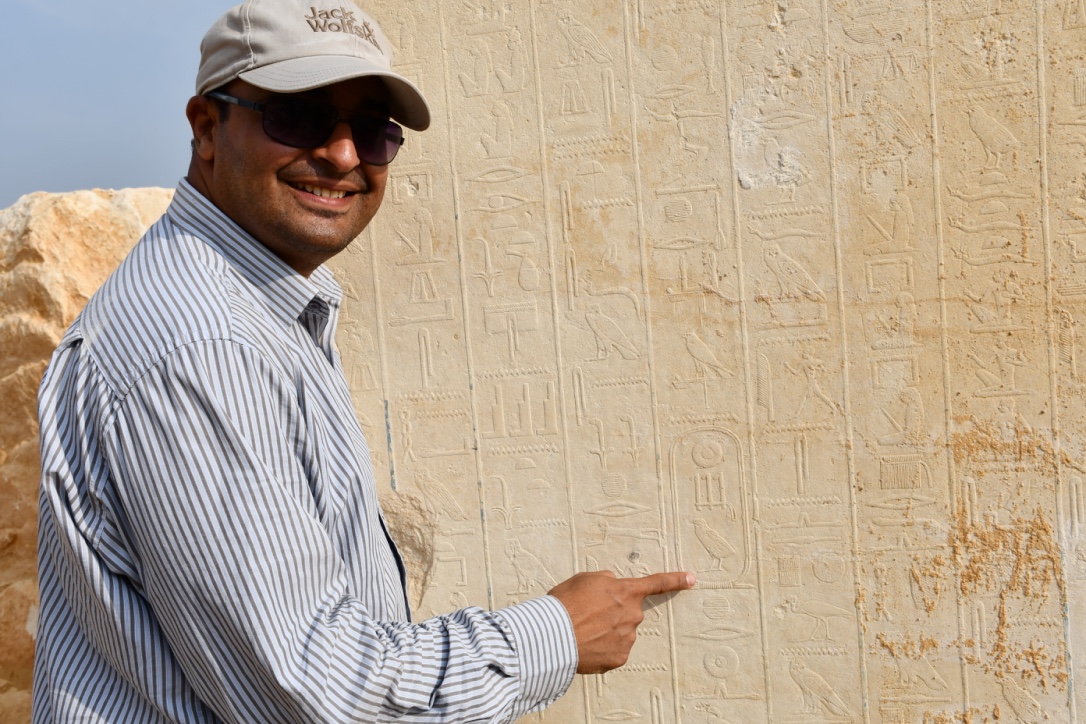Changing Old Paradigms: New Evidence from the Pyramid Complex of Sahura at Abusir
An ARCE Member Exclusive
Every month, ARCE offers an online lecture featuring research and experts in the fields of Egyptology and Archaeology to its membership. If you are a member of ARCE and would like to attend, please register using the form available below.
Check out what we have in store for this month!
March 7, 2021 1PM ET/ 8PM EET
(Registration form below)
Speakers: Mohamed Ismail Khaled
Lecture Information:
John Perring undertook the earliest exploration of the funerary complex of Sahura in 1837. In 1907, the German Egyptologist Ludwig Borchardt, carried out the principle exploration of Sahura’s pyramid complex. He paid great attention to the architecture of the complex. However, he left most of the causeway unexplored. In 1994 the Egyptian mission began the excavation around the causeway. Four huge limestone blocks, inscribed with polychrome bas relief and dozens of the fragments were uncovered. The discovery proved that Borchardt never fully excavated the causeway. In 2002, the mission unearthed more than 18 huge blocks from both sides of the causeway. In 2017, the mission removed the debris from Borchardt’s excavation at the uppermost end of the northern side of the causeway, revealing the first settlement to be discovered around the pyramid complex of Sahura dated to the first millennium. The excavation continued in 2019 revealing new 4 blocks with polychrome reliefs. With the generous financial support of the Archaeological Endowment Fund (AEF) the work inside the pyramid of Sahure was undertaken. The work concentrated on cleaning the interior rooms as well as consolidating and restoring the pyramid substructure in order to prevent further collapse and to protect the pyramid. New evidence came to light that changed completely our understanding of the interior design of the pyramid and opened a new era of the history of the pyramid’s exploration.
About Mohamed Ismail Khaled:
Dr. Khaled graduated from universities in Minia and Cairo. He acquired his PhD at the Charles University in Prague, Czech Republic in 2009. Between 2014 and 2016 he received a Postdoctoral Research fellowship from Alexander von Humboldt foundation at Würzburg University. He is also a high official at the Egyptian Ministry of Tourism and Antiquities. He served as the Director of Foreign Mission Affairs, and was also supervising the Department and Site Management Project of Pyramids at Giza Plateau. Dr. Khaled is a specialist in the Old Kingdom and the Director of the Abusir Project, excavating the pyramid complex of Sahura at Abusir. In 2018, he received an AEF grant to restore the substructure of the pyramid of Sahura. His work inside the pyramid revealed many interesting new evidence, which has changed the current view of this monument.
Registration will close 48 hours before the lecture starts. Registration does not include any future lectures in this series.

